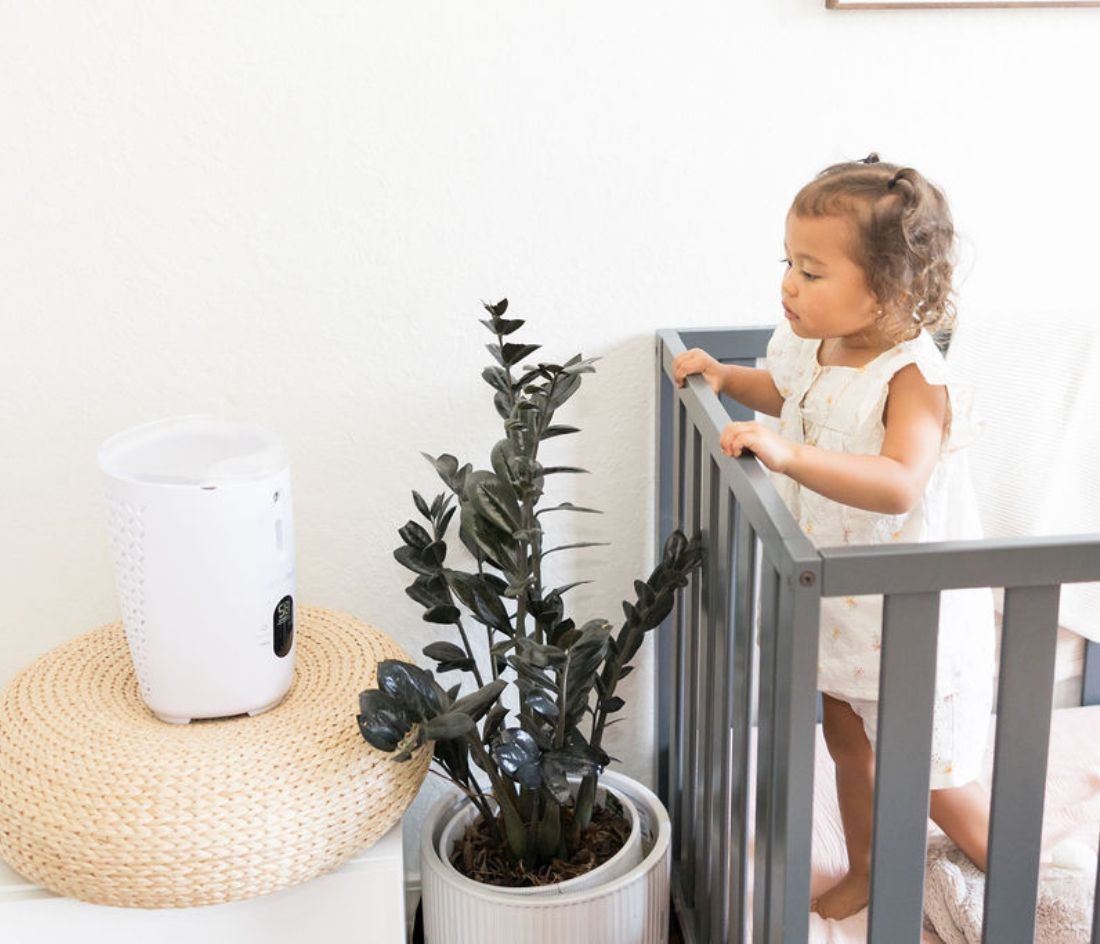Guest Post by Katy Fleming, MA, LPC, BSN, RN
Introducing your little one to new foods, tastes, and textures is exciting. You’re opening a new world of experiences to share with your baby. However, along with the fond memories comes potential hazards and allergies.
It may seem daunting to expose your baby to a variety of new ingredients. Where does the process begin?
The Ultimate Guide to Introducing Allergen-Friendly Foods to Babies
Thankfully, we have the ultimate guide for you to introduce allergen-friendly foods to your baby.
When Should I Begin Introducing Solid Foods?
At 6 months of age, most babies are ready to begin trying solid foods. Every child is different however, infants should never start solid foods before 4 months of age. Your baby’s digestive system needs more time to fully develop.
When your child is ready for solid foods, they’ll demonstrate developmental signs of readiness. Here are a few examples:
- Opening their mouths when offered food
- Sitting up alone or with support
- Head and neck control
- Attempts to grasp small objects
- Moves food from the front to the back of the tongue to swallow
- Brings objects to their mouth
- Swallows food rather than pushing it back out of their mouth
Once your child reaches these developmental milestones, you can begin introducing solid foods in addition to breast milk or formula. Don’t forget— every child is unique and develops at their own pace!

Which Types of Food Should I Choose?
As the parent, your baby’s first meal is your decision and it’s an exciting time. There’s no particular order to introduce types of foods. Experts do recommend beginning with one ingredient at a time to assess for food allergies. After 3-5 days, you can add another ingredient while continuing to monitor for reactions.
Keep in mind, your child needs time to adjust to solid foods. They’re new to these textures, tastes, and thicknesses. Ensure the foods are mashed or pureed to assist with this process of learning new textures. It’s okay if mealtime is extra messy in the beginning. By 7-8 months, your child should eat from various food groups including fruits, vegetables, meats and proteins, yogurts, and cheese to name a few.
Which Foods Can my Baby NOT Eat?
It’s important to remember a few ingredients that your baby absolutely cannot eat yet. As we discussed, their digestive systems haven’t completely developed and can’t handle all foods. Let’s discuss some key ingredients to not give your child before 12 months of age:
- Cow’s Milk: Stick to breast milk or formula until 12 months of age. Cow’s milk doesn’t have enough nutrients and contains proteins that your baby’s little kidneys can’t process.
- Honey: Due to bacteria, honey can cause infant botulism.
- Juice: Simply too much sugar– even at 12 months, your child should only have a few ounces of juice a day.
- Unpasteurized Foods: Harmful bacteria in unpasteurized foods, such as certain yogurts and cheese, lead to severe diarrhea.
In general, there’s no need to give your baby any additional sugar or salt. Excessively salty foods such as lunch meat and hot dogs should be avoided.
What are Common Allergy-Producing Foods?
The most common allergy-producing foods are eggs, dairy, shellfish, wheat, soy, tree nuts, sesame, and fish. Centers for Disease Control and Prevention recommends introducing new foods one at a time to appropriately identify which ingredient is causing the reaction.
Food allergies cause an immune response, which symptoms may include vomiting, hives, swelling, wheezing, or difficulty breathing.
If your child experiences these symptoms, seek immediate medical attention.
Experts now recommend including allergen-causing foods as you introduce various new foods to your baby. Research shows that there’s no need to avoid these potentially allergy-inducing foods. Rather, be aware of potential symptoms and monitor your baby’s reactions.

Additional Tips on Giving Your Baby Food
As you prepare foods for your baby, be sure that it’s easy for your baby to swallow. Boil hard foods such as apples. Don’t give your baby small or stuck food items that may lead to choking. Cut circular items such as grapes to prevent choking hazards, as well.
Your child should sit up while they eat and can start with a few tablespoons of food.
Your baby won’t eat the same amount each day and that’s okay! Start early by encouraging healthy eating habits such as eating slowly, with small bits, and a balanced meal.
If you enjoyed this post, you will also love:
- What Kind of Cold Medicine Should You Avoid When Breastfeeding?
- Hidden Ingredients to Be Careful About With Babies Under 1
- Healthy Candy Swaps For Kiddos
- 3 Tips For When Baby Won't Take a Bottle or Nurse
As a licensed counselor and registered nurse, Katy approaches freelance writing with years of experience and a unique perspective. Alongside her partner, Katy loves to travel the world and embrace other cultures from volcanoes in Iceland to villages in India.
The Nozebot is a battery-powered suction device designed to clear nasal congestion in babies and children.




